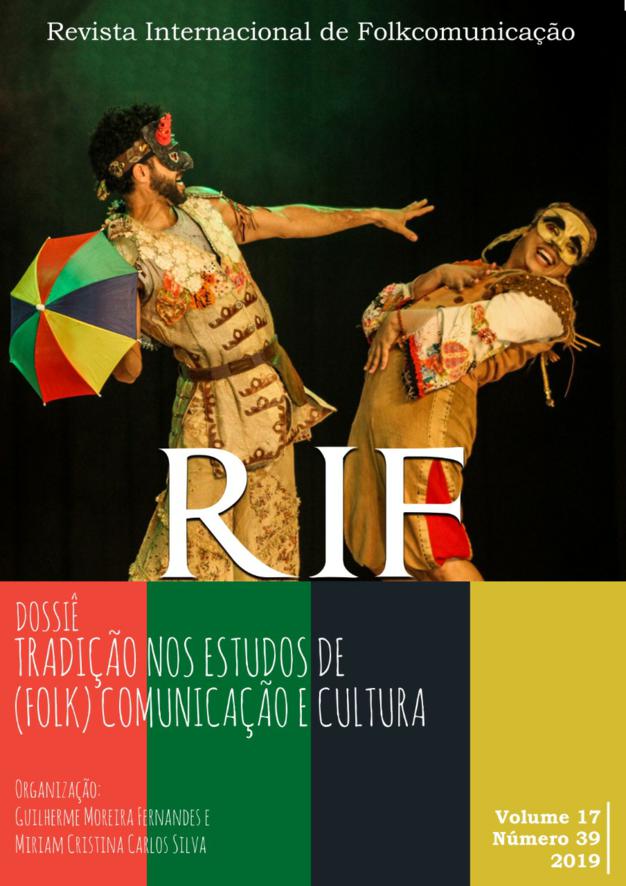Folkcommunication, media and folklore: A look at the feast of the "Lord Jesus Of the Great Power" of the city of La Paz (Bolivia)
DOI:
https://doi.org/10.5212/RIF.v.17.i39.0005Abstract
The feast of the "Lord Jesus of Great Power" is the greatest folkloric event of the city of La Paz (Bolivia). The research developed is theoretically anchored in the field of social and cultural practices, more specifically in the theory of folk communication. Therefore, the objective of this work is to carry out a folk communicational and folkmedia analysis of this festival, simultaneously considered as a festival, investigating in what ways it acts to promote the communication of the marginalized and folklore as a democratizing socio-cultural practice. The approach adopted is qualitative, the methodology starts from the bibliographic survey and subsequent theoretical and documental analysis of a series of research linked to the folk communicational field, the main tools used are the observation and photographic record of practices, festive rituals and, in a special way, the dances presented in its course. However, it was also used semi-structured interviews with some characters active in the party. The reflective challenge of this text points to the inclusion of the theory of folk communication, in the Bolivian academic field, since, at least until this moment and by the surveys carried out, this discussion has been absent. So it also resembles as a result, the addition of other theoretical categories such as: social and cultural practices and cultural resistance, in this context. The research is justified, to the extent that it opens a horizon of visibility, regarding the importance of the analysis of this folkloric event, as well as the issues related to communication of the marginalized in Bolivia. Party; Folklore; Folk communication; Socio-cultural practices.
Downloads
Downloads
Published
How to Cite
Issue
Section
License

Este obra está licenciado com uma Licença Creative Commons Atribuição 4.0 Internacional.
Os autores são responsáveis, em qualquer que seja o formato do texto, pelas opiniões expressas ou indiretas presentes em seus respectivos trabalhos, não endossáveis pelo Conselho Editorial e pelos editores da Revista, bem como pela autenticidade do trabalho. Ao publicar trabalhos na Revista Internacional de Folkcomunicação, os autores cedem automaticamente os direitos autorais à publicação para veiculação das produções acadêmicas, sem ônus para a Revista. Os autores detêm os direitos autorais do texto para o caso de publicações posteriores e concedem à Revista Internacional de Folkcomunicação o direito de primeira publicação, com o trabalho simultaneamente licenciado sob a Creative Commons Attribution License, que permite o compartilhamento do trabalho com reconhecimento da autoria e publicação inicial nesta Revista. Por serem publicados em revista de acesso livre, os artigos são de uso gratuito, com atribuições próprias, em atividades educacionais e não-comerciais, sendo permitida a publicação simultânea em repositórios institucionais.































